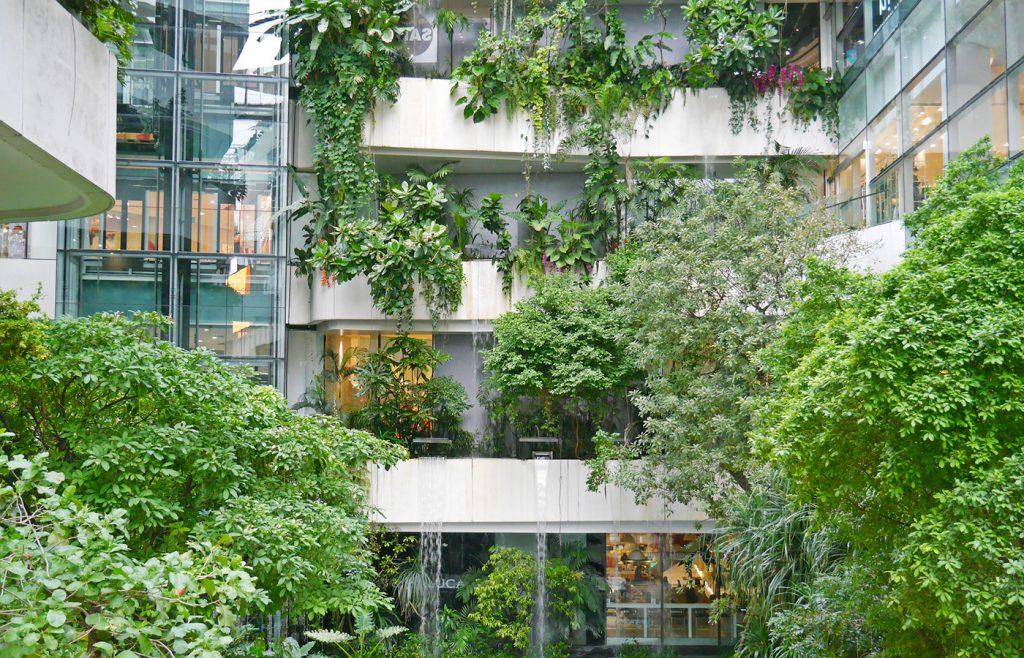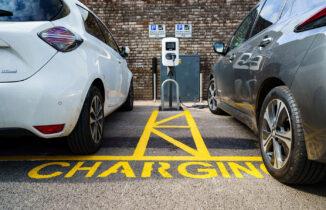Sponsored:

Ben Brocklesby, Director at Origin, aluminium windows and doors specialist, explores the issue of greenwashing in the construction industry, how to identify it, and how to avoid falling for the trap of unsubstantiated sustainability claims.
The issue of ‘greenwashing’ has become more prominent in recent years and has attracted significant media attention. While major corporations like Shell, ExxonMobil, Unilever, Coca-Cola, Starbucks, Zara, and Ryanair have been called out for spreading misleading claims about their sustainability efforts, it’s crucial to recognise that ‘greenwashing’ is not limited to these well-known brands. The construction industry, including fenestration, manufacturing, and installation, is also susceptible to greenwashing practices.
Understanding Greenwashing in Construction
‘Greenwashing’ refers to the use of false or deceptive actions and claims by businesses to promote their positive environmental impact. This can range from misleading packaging to construction companies presenting themselves as environmentally friendly when they are not. Any intentional attempt to mislead the public about a brand’s sustainability practices falls under the umbrella of ‘greenwashing.’
The Impact of Greenwashing on Construction Professionals
The impact of greenwashing on consumer behaviour and the environment cannot be overlooked. As sustainability becomes increasingly important in decision-making processes, misinformation can lead well-intentioned construction professionals to choose suppliers that do not align with their values for their projects. These misleading tactics make it more challenging for professionals striving to make responsible choices.
Identifying Greenwashing in Construction
Identifying businesses engaged in greenwashing can be challenging due to the various forms it can take. However, there are key indicators to watch out for. Pay attention to the language used on their websites and marketing collateral. Terms like ‘eco’, ‘clean’, ‘green’, ‘sustainable’, ‘non-toxic’, ‘recyclable’, and ‘natural’ don’t necessarily mean anything. Reputable businesses will provide transparent and specific claims, offering substantiation and explanations. In contrast, those attempting to mislead often use vague and unclear language.
Taking Control and Making Informed Choices
To avoid falling victim to greenwashing in construction, it is essential for professionals to take the time to conduct thorough research and educate themselves about the products, services, and businesses they wish to use in their projects. By arming ourselves with knowledge, we can avoid being exploited by misleading claims and make responsible choices.
Greenwashing in Fenestration
In the fenestration industry, some window and door competitors have manipulated the U-Values of their products to comply with new regulations. These brands have exaggerated the time and resources invested in upgrading products to enhance thermal efficiency. In reality, they have made minimal effort to innovate, resorting to short-term adjustments such as adding an extra pane of glass. While this change may seem simple, it leads to overall increased carbon dioxide emissions during the production of raw materials like glass and the use of non-renewable resources like sand and minerals. Moreover, the additional glass adds weight to delivery vans, resulting in higher fuel consumption and fewer deliveries per trip.
Recyclability is also a relevant issue in fenestration. Some uPVC manufacturers openly discuss their recycling efforts, but in practice, recycling this type of plastic is highly challenging. These examples serve as a reminder that not everything claimed by businesses is true, and while there may be elements of truth in their statements, the overall message shouldn’t be taken at face value.
What to Look for as Construction Professionals
Construction professionals should start by examining accreditations and seeking trusted third-party endorsements to support a business’s claims. Accreditations provide verifiable facts and demonstrate a company’s commitment to excellence, morality, and ethical values. It is essential to thoroughly assess these factors before making significant purchasing decisions.
Beware of own-branded logos and self-appointed awards, anyone can create these. Instead, prioritise certifications from reputable organisations and awards recognised by the industry. Certifications like BES 6001 for responsible sourcing of construction products, ISO 9001 for quality, ISO 14001 for environmental practices, and ISO 45001 for health and safety are excellent starting points.
Another critical aspect to consider is the materials used as some are inherently more environmentally friendly than others. For example, aluminium, which combines high performance and minimal environmental impact compared to uPVC or timber. According to the Aluminium Association, 75% of all aluminium ever extruded is still in circulation. When making purchasing decisions, carefully consider the materials involved and their life cycle.
Looking Ahead
There is reason for optimism as energy efficiency regulations in construction are rapidly evolving. The upcoming Future Homes Standard in 2025 will enhance the energy efficiency of buildings to reduce carbon emissions by 80% to help meet the government’s 2050 net-zero emissions target.
Regardless of potential business gains, ‘greenwashing’ is morally unacceptable, and no construction professional or business should resort to misleading tactics for sales. By raising awareness within the industry and fostering informed decision-making, we can combat greenwashing and promote sustainable choices that benefit both professionals and the environment.
For those that want to know more, or learn about Origin as a business, please visit www.origin-global.com.





